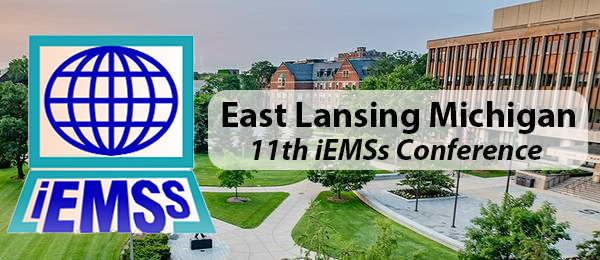Keywords
Cap’n Proto; distributed objects; computational infrastructure; models
Start Date
5-7-2022 2:00 PM
End Date
5-7-2022 2:20 PM
Abstract
For many years the amount of available data as well as computing power is increasing if not even accelerating. Naturally there is a high desire to use these powers and possibilities also in our environmental research field. Unfortunately at the same time the diversity in hardware (mobile/desktop/cloud/HPC) and software (languages/frameworks) is growing as well let alone because of the increasing amount of legacy to deal with. One common way to manage these challenges is to centralize storage and computational power and via central authority impose restrictions on useable hardware and software. Another possibility could be to leverage the ubiquitous connectedness of our modern world and allow for decentralized solutions and protocol-based communication between computational structures. In this presentation we want to report about our endeavour of creating a decentralized capability secure model and simulation infrastructure. Because our approach is based on the Cap’n Proto protocol we are able to to create a distributed set of services to computational as well as data resources which can seamlessly and securely interact. Squinting one eye such an infrastructure looks to the developer like a distributed object oriented program. But decentralization and distribution bring a lot of challenges to the table, starting with efficiency concerns like network latency and certainly not ending at issues of service stability. We will try to illustrate how the available mechanisms of our chosen base technologies work together to make such an infrastructure possible and hope to show why a decentralized approach must be based on the object capability paradigm. Further, we try to make a case that the approach presented here can actually help to connect distinct platforms and thus offer new ways of collaboration outside of centralized walled gardens.
Experiences and challenges in developing a decentralized
For many years the amount of available data as well as computing power is increasing if not even accelerating. Naturally there is a high desire to use these powers and possibilities also in our environmental research field. Unfortunately at the same time the diversity in hardware (mobile/desktop/cloud/HPC) and software (languages/frameworks) is growing as well let alone because of the increasing amount of legacy to deal with. One common way to manage these challenges is to centralize storage and computational power and via central authority impose restrictions on useable hardware and software. Another possibility could be to leverage the ubiquitous connectedness of our modern world and allow for decentralized solutions and protocol-based communication between computational structures. In this presentation we want to report about our endeavour of creating a decentralized capability secure model and simulation infrastructure. Because our approach is based on the Cap’n Proto protocol we are able to to create a distributed set of services to computational as well as data resources which can seamlessly and securely interact. Squinting one eye such an infrastructure looks to the developer like a distributed object oriented program. But decentralization and distribution bring a lot of challenges to the table, starting with efficiency concerns like network latency and certainly not ending at issues of service stability. We will try to illustrate how the available mechanisms of our chosen base technologies work together to make such an infrastructure possible and hope to show why a decentralized approach must be based on the object capability paradigm. Further, we try to make a case that the approach presented here can actually help to connect distinct platforms and thus offer new ways of collaboration outside of centralized walled gardens.



Stream and Session
false